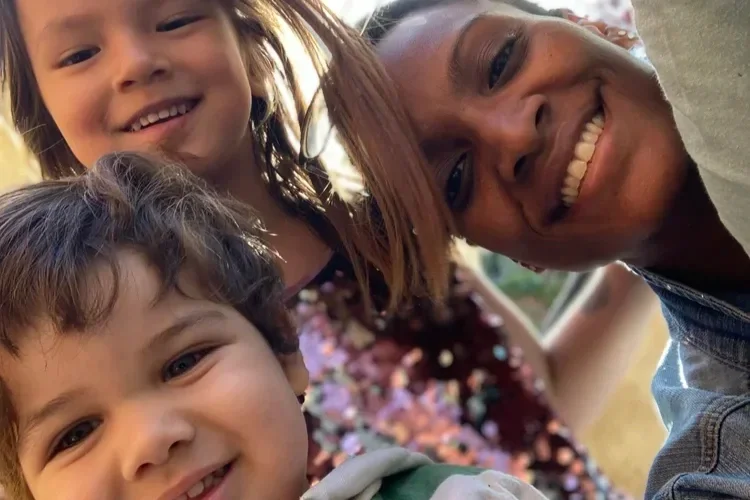
Educational Philosophy
We are a warm, welcoming community that places family relationships at the center, making the home-school connection significant in a Montessori environment that supports the growth of independent and critical thinkers, and care of self, community and the planet.
Our curriculum is centered in anti-bias and nature-based principles. We take into account each individual child’s development and design our curriculum to be accessible to all learners.
Classroom
Place-based learning means that children are learning from the world around them. This learning requires participation in our community so that children are nurturing their relationship with themselves, their neighbors and their local environment. This looks like daily trips into the garden; each morning waving hello to our friend who lives upstairs; a family visiting the classroom to celebrate a special holiday with us. Learning in this way allows children to have hands-on exploration and connection to what matters to them most - the world they engage with each day.
Montessori
The Montessori method allows educators to tailor learning to each individual child in a multiage learning environment that values independence and community. Montessori materials support developmentally appropriate learning of academic concepts through hands-on work. When offered in parallel with our robust social/emotional play-based and arts curriculum, we can support the growth of the whole child. Our Montessori methodology is rooted in nature-based learning. A nature-based learning environment is one of the richest places for a child to learn.
Anti-Bias
Our curriculum includes direct discussions and learning around similarities and differences. Children see differences (like race, gender, and ability) at a young age and without intentional discussion they will attach stereotypes and biases that have been modeled or directly taught to them by society, family, and neighbors. We help give children the tools to express and embrace their own differences and the unique identities of others. In the classroom different identities are represented in all spaces (from books and music, to meeting discussions and classroom art) so that children see themselves reflected and also have a window into the lives of people who are different.
Time in nature has positive influences on physical, social-emotional, and cognitive development and offers a myriad of opportunities to learn environmental stewardship - leading children to have the skills, knowledge, and empathy to care for the Earth. This involves time spent outdoors, interaction with natural objects in our Montessori teacher-made works, and art projects filled with nature-based materials. We see nature-based education as a vital tool to support the growth of emotionally and physically healthy children, enriching children’s lives with the chance to love their natural surroundings. This is a necessary step in supporting the wellbeing of our planet and the beings on it!
Play = Work = Learn
Our classroom includes open-ended materials to support learning through play. Throughout the year, we build emergent project work from observing the children to see their interests. We also determine how to scaffold development by infusing the emergent elements and play with more typical academic learning opportunities through classic Montessori and Montessori inspired lessons.
Play is inherently filled with developmental opportunities for growing social, emotional, verbal, and cognitive skills (like problem-solving and critical thinking); both independence and collaboration; and a love of learning.
Our Goals
For children to
care for themselves and each other
care for the Earth
become their own strongest advocate and ally, while thinking critically, being open-minded, and aware of their own internal motivation.
For families to
see and support their children
release the anxiety around “following the perfect parenting methods”
connect to a community
For educators to
prioritize inner work to be healthy role models to students and colleagues
lead a classroom where the “family community” is centered
work as life long learners by sharing and listening with curiosity to all
Create a space that is
for children
inclusive
calm, nurturing and beautiful

We are here to support and honor the work of the youngest citizens in our society as they grow individually and in community, as well as to create an easeful transition for adults ready to return to work after family leave.
Through socially engaged early childhood education that prioritizes collaborative exploration, we grow a community of young children and their adults where there is empathy for all and connection to the natural world.









